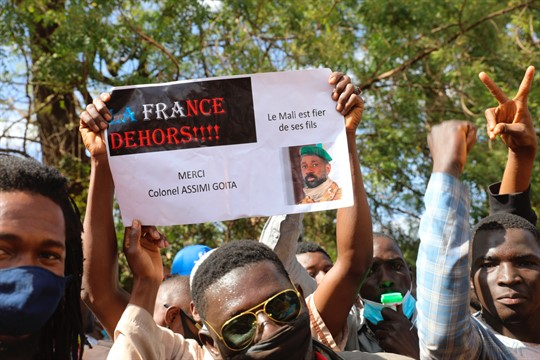On Jan. 14, Malians across the country took to the streets en masse, after the country’s interim military government called for protests against tough sanctions imposed the previous weekend by the Economic Community of West African States. Leaders from the West African bloc had acted after the ruling junta reneged on a 2020 agreement to hold national elections by February 2022, with measures that included shutting regional borders with Mali, imposing a trade embargo and freezing Malian assets at the Central Bank of West African States. The West African Economic and Monetary Union, or UEMOA, also moved to restrict Mali’s access to regional financial markets.
In response, Bamako denounced the sanctions, recalled its ambassadors from ECOWAS member countries and called for mass demonstrations against the bloc, which it accused of doing the bidding of foreign powers. First and foremost, that meant France, Mali’s former colonial ruler with which Bamako has been locked in a long dispute over Paris’ counterterrorism strategy in the region.

